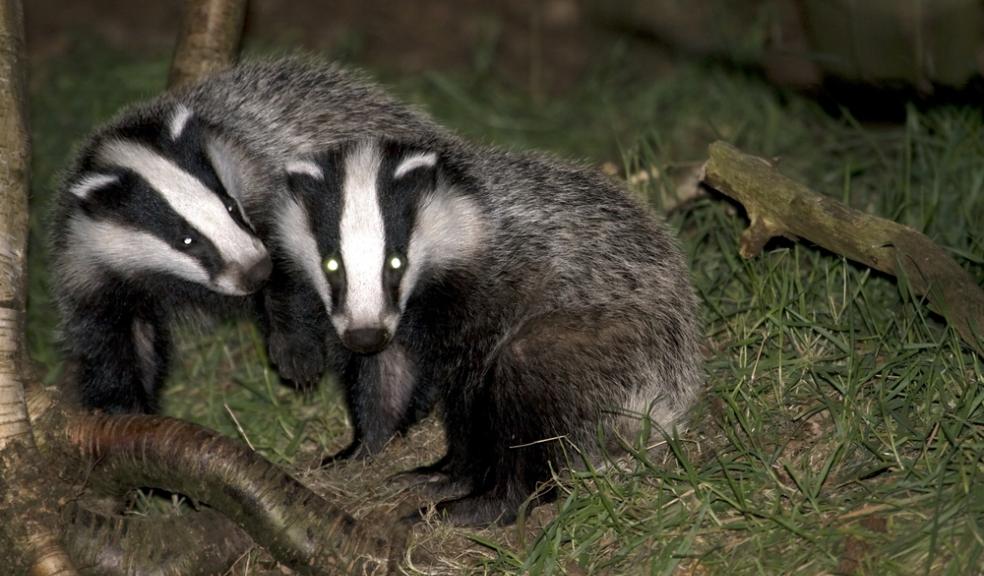
Badger Cull could be extended in Somerset and Gloucestershire
The company which ran the pilot badger cull in Somerset have applied for an extension of two to three weeks to complete their work.
Natural England, the national executive responsible for protecting and improving England's natural enviroment is currently considering the application.
Gloucestershire is expected to also apply for an extension.
The Department for Enviroment, Food and Rural Affairs (Defra) has said that current indications suggest the six week pilot cull was humane, safe and effective in reducing the badger population.
The Chief Veterinary Officer has advised the government that by increasing the number of badgers culled it would improve the benefits in reduction of bovine Tuberculosis (bTB).
Enviroment Minister, Owen Paterson released a statement saying: "In the six weeks of the cull, 850 badgers have been removed in Somerset.
"One of the lessons we have learned already from this pilot is that in order to ensure high levels of safety and humaneness, the cull period may need to be longer than six weeks in future.
"The Independent Panel of Experts will consider all the information which has been collated during the culls and it will be made publicly available after the culls have finished. The cull in Gloucestershire is still on-going and I will make a further statement when the 6 weeks is completed. I understand that this morning Gloucestershire is also submitting an application for an extension to Natural England.”
The cull however has faced criticism for achieving less than half of the initial target of 2,081 badgers or 70% of the estimated badger population.
The 850 shot in the cull represent less than 30% of that initially estimated population.
The pilot culls in Somerset and Gloucestershire were initially licensed to shoot a total of 4,940 badgers but current government targets are for 2,670 badgers to be shot.
Anti-cull campaigners have widely criticised the cull as being ineffective with Gavin Grant, RSPCA chief executive calling the cull a "farce".
Grant said: "The six-week trials were intended as a way of testing the effectiveness and humaneness of shooting badgers as a means of controlling bovine TB in cattle. If they have failed to kill the numbers needed in the set time frame – then surely it can clearly be judged to be ineffective,”
“Frankly this whole situation is a farce. They keep moving the goalposts on how many badgers exist and how many need to be killed, but whatever the figures it is clear that the system has failed,”
When asked if the government had moved the goalposts by BBC spotlight last night Owen Paterson said; “No that's not right at all; the Badgers have moved the goalposts. You’re dealing with a wild animal...subject to the vagaries of weather, disease and breeding patterns."
Responding to the news from Defra today, the National Farmers Union (NFU) supported the Government’s view that the pilot culls had been carried out safely, humanely and effectively.
NFU President Peter Kendall said he understood that the companies managing the two pilot areas had gone to great lengths to ensure the operations had been carried out safely and humanely and he welcomed Owen Paterson’s recognition of the work that had been carried out.
Mr Kendell said:“After the Secretary of State’s comments today on the progress that has been made, I want to thank those involved in carrying out what is a very important first step on the long road towards eradicating TB in cattle, in badgers and from our countryside.
“Safety and humaneness are two really important tests.
“I am also pleased to hear confirmation from the government chief vet that the current cull operations in Somerset to date will deliver disease reduction as part of a four-year plan.
“I understand that the company carrying out the cull in Somerset has applied to Natural England to extend the culling period to enhance its disease control. They made this application towards the end of the six-week pilot cull and I understand that a decision will be taken this week whether to extend the licence.
“The knowledge learned from these two badger cull pilot areas will be invaluable in helping to deliver future roll out of badger control operations in areas where the incidence of TB is rife.
“Our absolute focus, and that of everyone involved, is disease control. More than 38,000 cattle were slaughtered in Great Britain in 2012 because of bovine TB. These badger cull pilots are a very important first step in what is a 25-year strategy to eradicate this terrible and infectious disease.”













